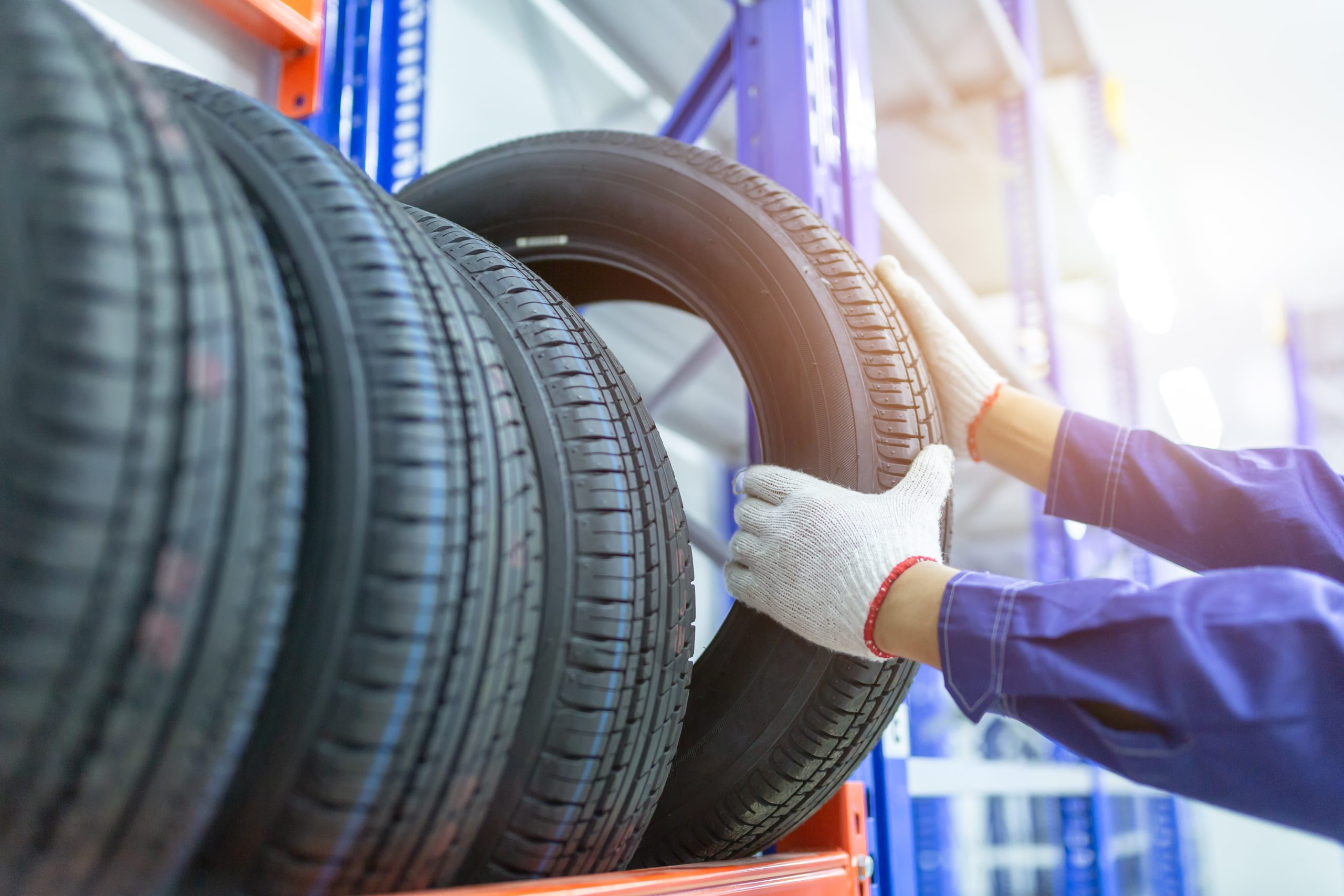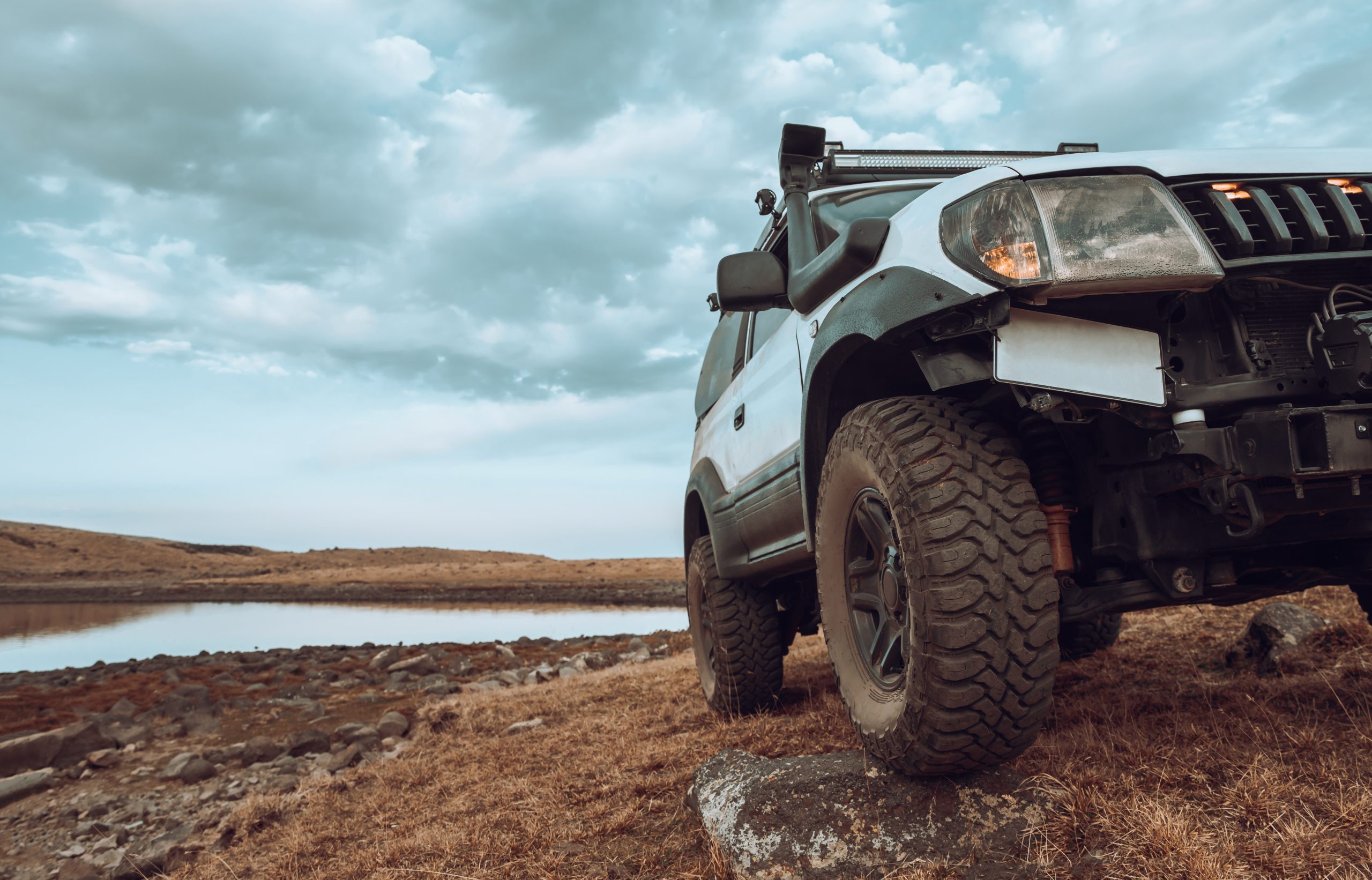All-Terrain Tire Information Guide
Are you thinking about installing some all-terrain tires on your car, SUV or truck? Depending on your needs, that may be a fantastic idea. Before you do anything, though, it’s important to really learn what it means to drive with all-terrain tires. That includes how they affect your ride, what benefits they have for you and your vehicle, how quiet they are, what situations they’ll be useful in, and so much more. Ultimate Rides has put together this guide to help you with all of that. We’re custom vehicle experts, and we install all-terrain tires on vehicles for our customers on a regular basis. Take a look at the information below, and remember that you can always get in touch with our team over the phone if you have any additional questions!
Are All-Terrain Tires Okay for the Highway?
All-terrain tires are definitely okay for the highway. In fact, they’re the perfect choice for people who divide their time between highway driving and off-road action. Designed to function on both pavement and off-road, all-terrain tires have become the right option for a lot of today’s drivers. On the highway, these tires perform well, but they’ll get worn down faster than other tires more specifically catered to the highway. This means, if you do enough driving on the highway, you’ll have to change these tires out quicker than a set of all-season or touring tires. Additionally, you will use more gas compared to those other options while on the highway.
For some drivers, these trade-offs are worth it, because you’ll easily be able to head on the trail without having to change to a new set of tires. If you’re the type of person that likes being able to tackle whatever is next, we think a good set of all-terrain tires will work for you. On the other hand, if you only plan to go off-road on certain occasions and not very often, it might be smarter to look for another style of tires, such as touring or all-season tires. If you’re feeling unsure about what kind of tires to install, it’s not a bad idea to consult with an expert, let them know what you’ll be spending most of your time doing, and take their recommendations to heart.
What Are Disadvantages of All-Terrain Tires?
There are just a few disadvantages of driving with all-terrain tires. The most commonly-heard con is less efficient fuel economy. In order to support the ability to take your vehicle off-road, the tread pattern for all-terrain tires differs from your ideal highway tires. While they still perform great, there is greater friction between the tire and the road beneath. That means it takes more energy to get you moving, therefore causing you to use up more gas as you drive. In addition to this, the tread on the tire will wear more while being used on the highway. This is because these tires use a softer kind of rubber compared to tires specifically designed to use on the highway. With that greater degree of friction we were talking about, the tires will wear quicker than all-season or touring options, likely with a warranty around 40,000 miles.
You’ll also have to deal with a higher level of road noise compared to standard tires. It’s just one of the trade-offs to having the ability to take your vehicle off-road. For most drivers, it isn’t too much of a problem, and it won’t have any effect on your ride quality. One thing that can affect ride quality, when proper maintenance isn’t upheld, is something called tire scalloping. This is when one area of the tread wears out faster than another area, and it can create a bumpy ride for you and your passengers. As long as you stay up-to-date on your maintenance, including tire rotation, this should not be something you have to worry about.
Do All-Terrain Tires Waste More Gas?
All-terrain tires do use more gas. However, that’s just one of the trade-offs that you’ll have to make for the benefits it offers. The main reason people install all-terrain tires is so that they can take their vehicles off-road. That means that these tires have a distinct tread pattern, very different from your standard highway tires. While your regular highway tires are designed to keep moving while using as little energy as possible, all-terrain tires are designed with performance in mind. Their tread pattern means more energy needs to be used to keep them rolling. Without it, the greater level of friction between the tire and the road would slow the tires, and your vehicle, down.
The amount of extra gas you’ll need with all-terrain tires installed will cost you a little more each week or month, but it’s not quite to the extent that some people think. The exact change in fuel economy will depend upon your exact tires, as well as a number of other factors. If you’re concerned about fuel economy, do your research to find the best all-terrain tires for saving on gas. There have been plenty of people in that exact situation before, and you should be able to find plenty of expert opinions on the most fuel-economy-friendly all-terrain tires available to buy today.
Do Better Tires Reduce Road Noise?
Better tires can reduce road noise. However, it all depends on what your definition of “better” is. Road noise is caused by certain tire tread patterns, and these tire tread patterns often have performance benefits associated with them. If you’re less concerned about performance and want to get your ride as silent as possible, you’ll certainly be able to find tires that can make this happen. However, there will likely be some trade-offs there when it comes to performance. That means you’ll want to strike the right balance between noise and performance. Shop around for the right set of tires and we’re very confident you can make this happen.
All-terrain tires are designed with performance in mind. That means many of them will increase the level of road noise you’ll experience while out on the highway. However, there are some brands and specific tire models out there that do what they can to reduce road noise. Search around online and see what other customers have to say about the level of road noise with their chosen tire. This should give you a solid idea of what to expect. You can also consult either with the tire manufacturer or experts such as our team at Ultimate Rides. When you do so, you’ll be able to learn more about reducing road noise with the right set of all-terrain tires.

Do All-Terrain Tires Really Make a Difference?
All-terrain tires really do make a difference while driving. With a set installed on your vehicle, you’ll be able to drive on both the highway and city streets, as well as off-road trails. These tires are designed to be versatile, acting as something in-between all-season and mud tires. This means that they have a tread design that helps with traction while off-road, but not to the same extent as off-road tires. All-terrain tires also include features that make them good choices year-round, such as deeper treads. While they won’t compare to a good set of winter tires, they’re a strong improvement over standard tires in the snow. In addition to all that, most all-terrain tires feature reinforced sidewalls that increase their load capacity, letting you safely haul more cargo without risking any damage.
Taking all of that into account, it’s worth thinking about a set of all-terrain tires as your go-to option. They may not be designed specifically for highway use, but they offer versatility across seasons, and will allow you to head off-road when you’re ready. All of this is without sacrificing the quality of your ride while on the highway. There are some minor drawbacks you’ll find with these tires, but you won’t have to worry about handling, vibration, or other problems that can affect vehicle performance. If you intend to take your ride off-road in certain situations, a strong set of all-terrain tires are likely going to be the best option available to you.
Do All-Terrain Tires Work in Rain?
All-terrain tires can work very well in the rain. While tire manufacturers make all-weather tires that are specifically designed to take on rain and snow, they don’t perform very well off-road. Drivers who spend a great deal of time both on the highway and off-road should look to all-terrain tires instead. When it comes to rain, they’ll be able to maintain their grip, helping prevent you from sliding around the road and highway even when the pavement is wet. At the same time, all-terrain tires have a level of versatility that all-weather tires just don’t offer.
If most of your time is spent on the highway, it would make more sense for you to look for a set of all-weather tires to accommodate your vehicle. However, if you’re here reading this, it’s very likely that you’re an off-road enthusiast. You won’t want to take a set of all-weather tires off-road on more than just occasionally. You can still trust your all-terrain tires to handle well on wet pavement, even if that’s not their primary function. Just be sure to check out reviews, from both customers and professionals, before you install a full set on your vehicle, and see what they have to say about performance in the rain.
Do All-Terrain Tires Make Road Noise?
All-terrain tires do make road noise. Due to the style of their tread patterns, which place an emphasis on performance, the air flowing through the grooves as it makes contact with the road creates a louder noise. Other tires, such as touring tires, design their tread patterns to minimize this. The tread patterns on all-terrain tires are instead meant to increase traction, both on the highway and off-road. So you’ll need to decide what element is most important to you while shopping. There are all-terrain tires that make an attempt to reduce the level of road noise created, but it’s still almost always going to be louder than a set of highway tires.
If reducing or eliminating road noise is at the top of your list of priorities, it’s worth considering if all-terrain tires are the right option for you. Think about how often you’ll be going off-road. If the answer to that is quite often, you’ll probably just want to learn to live with the level of noise caused by these tires. Otherwise, if you only intend to go off-road once in a while, you can think about picking up a different style of tire for your vehicle. In most cases, we’d say stick with the all-terrain if you plan to go off-road at all, because other kinds of tires just won’t provide the right kind of performance you’re going to want.
Do All-Terrain Tires Wear Faster on Pavement?
All-terrain tires do wear faster driving on pavement, compared to a set of highway tires. Still, many drivers will find this worth it. The fact is if you plan on going off-road, you’re going to want a set of all-terrain or mud tires. Mud tires wear out even faster on pavement, meaning you won’t want to be driving a set of mud tires on the highway for long stretches of time. This is the true value of all-terrain tires. They’re the perfect balance between highway and mud tires, making them the right choice for drivers who need both. While they’re not optimized for either situation, they are situated between the two, letting you freely switch between the two driving scenarios without compromising your performance.
The big trade-off here is that you’ll need to switch out your tires more often. However, as long as you take good care of your tires and stay on top of vehicle maintenance, a strong set of all-terrain tires should still last you upwards of 50,000 miles instead of the standard 40,000 for this type of tire. Think about whether that trade-off is worth it to you, and then start shopping for some great all-terrain tires!

Are All-Terrain Tires Harder to Puncture?
All-terrain tires are harder to puncture compared to standard types of tires. In fact, this is one of the big advantages drivers will find over all-season or touring tires. Because you’ll likely be taking your vehicle onto trails and into wild terrain, you need to be able to be sure that your tires can withstand whatever is out there. That means it will be able to hold up against rocks, possible shards of glass, and a lot more. While other tires have this kind of resistance to a certain extent, all-terrain tires take it even further. When you have a set installed on your vehicle, you’ll be able to drive without stressing out about the possibility of puncturing one of the tires.
These tires are tested in a wide variety of extreme situations. In order to start becoming a best-selling all-terrain tire, the manufacturer has to show that the tire is worthy of the all-terrain label. Do your research on each tire, paying special attention to puncture resistance if that’s important to you. There should be plenty of expert reviews to look over online, and customer reviews can be helpful in certain situations as well. While you likely won’t need to take advantage of the tire’s aversion to punctures, it’s always safe to have an extra layer of protection. While just about every kind of all-terrain tire will be able to offer this advantage, you will likely be able to find options that place even more an emphasis on it, so be sure to shop around until you find the right tire for your needs.
Do All-Terrain Tires Need to Break In?
It’s true that you need to break in all-terrain tires. It’s recommended that you drive your tires on hard, dry pavement for about 100 miles before taking the tires to any more extreme conditions. That includes off-road use as well as slick rain and snow. This is because there are a number of chemicals applied to the tires at the factory, and these need to be worn off by driving the tires around. Once you wear down the tread just a little bit, you’ll be able to feel the benefits of all that extra traction.
Thankfully, it should not take too long for you to wear that tread down and get rid of the remnants of the factory chemicals. From there on, you’ll be able to take your tires straight from the highway to off-road trails and more without worrying about any drop in performance. Think of your tires like a pair of boots. When you first wear them, they might feel a little bit odd, and won’t always be as comfortable as you know they’re supposed to be. However, after wearing them for a little while, they start to adapt to your feet, and you’ll be able to tell that they’re your boots in no time.
Do All-Terrain Tires Last Longer Than Mud Tires?
All-terrain tires do last longer than mud tires. While mud tires are designed specifically for off-road use, you’ll be able to take your all-terrain tires just about anywhere, from the highway to muddy trails. Mud tires get worn out quickly, as they have a soft tread that will easily get worn down. The tread on all-terrain tires is going to be softer compared to your standard highway tires, but they’ll still last 40,000-50,000 miles when taken care of. The most you can expect out of a set of mud tires is probably 40,000 miles, making all-terrain the clear better choice when it comes to longevity.
The benefit of mud tires is that they will offer better performance off-road and in, you guessed it, the mud. However, the right set of all-terrain tires can still perform great in these conditions, and you’ll be able to clean them off and hit the highway right after and still find strong performance. The right choice for you depends upon your priorities, and what you’ll be using your truck or SUV for on a daily basis. Take some time to think about those priorities and then feel free to start shopping around.
Is a Higher Ply Tire Better?
Higher ply tires are better in general. However, it all depends on your specific needs. Ply refers to the number of rubber cord layers in a tire, and the higher the ply, the more weight your tires will safely be able to support. Each tire has a Load Range rating, ranked from A to F. The number of ply your tire features will determine this load rating, with 2-ply tires being rated A and 12-ply tires being rated F. Passenger tires, marked by a P, will be four-ply or less, while light truck tires, noted by an LT, will be six-ply or more. If you plan on carrying heavy loads around in your truck or SUV, you’re going to want to go with a higher ply rating.
An area where the ply rating doesn’t hold great importance is performance. Your ply rating won’t determine how well your tire performs either on the highway or on trails. That means, unless hauling heavy cargo is in your future, you shouldn’t have to worry too much about the ply rating of your all-terrain tires. It’s definitely worth investigating, however, to determine how much weight you can safely transport without sacrificing your safety.
